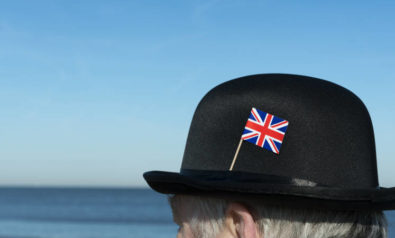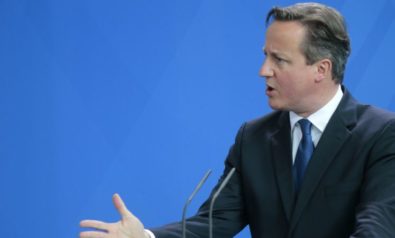Millennials are not looking forward to the repercussions of bad decision-making by baby boomers, be it voting for Brexit or supporting Donald Trump.
Everyone knows the saying “stranger than fiction,” but in the past few months it seems to have taken a new meaning altogether. With Britain leaving the European Union (EU) and Donald Trump becoming the presumptive Republican nominee in the US presidential election, the world and all its shifting realities have finally started to look stranger than fiction. These strange times have been brought about and almost accentuated by the politics of hate and division over unity.
With the United Kingdom voting to leave the EU on June 23 and Trump calling it a “good thing,” one wonders if globalization and the era of peace are slowly but surely being undone by one political fiasco after another.
When we, as citizens, make important decisions like supporting a certain political candidate or deciding which issues matter to us as voters, long-term impacts are usually never factored in. It is only human nature to be concerned with the immediate rather than plan ahead for the future.
That is why when voters choose to close borders or support candidates like Trump, they are experiencing a cognitive bias known as hyperbolic discounting, which prevents us from choosing long-term pay-offs over immediate temporary gains. Such biases can be dangerous when millions of people are affected by it.
In the case of Brexit, this hyperbolic discounting could undermine four decades of carefully-constructed policies and rules created by the collective union of 28 European countries, only because of short-term fears of increased migration and a stagnant economy.
Set to Worsen
Political problems like these are only set to worsen with long-term problems like climate change creating greater numbers of environmental refugees and having a direct impact on the economy. In order to effectively deal with a trans-boundary problem like climate change, the solution does not lie in closing borders. With Britain’s exit, strong environmentally-minded EU policies like putting legal limits on air pollution, protection for nature and wildlife, a pesticide ban protecting bees, recycling and waste management among many others are uncertain to follow the UK in its wake.
The situation is not helped when right-wing politicians like the United Kingdom Independence Party's (UKIP) leader Nigel Farage (a key member of the Vote Leave movement) and former Mayor of London Boris Johnson (a leading contender for the UK’s next prime minister) are climate change skeptics.
A similar situation of disbelief has arisen in the US, where Donald Trump once tweeted that “global warming was created by and for the Chinese in order to make U.S. manufacturing non-competitive.” For any leading presidential candidate to not accept decades of scientific data that establishes climate change as a very real and serious global threat, it seems as if the world is now truly becoming stranger than fiction.
Earlier this year, when the Paris Climate Agreement was signed by 178 countries who pledged to work together against climate change as a global community, there was a brief moment of hope and optimism for the future of humanity. Since then, however, the world seems to have reversed its stance on working together as a single unit.
At a time when political leaders and heads of states should be thinking of creating an atmosphere of collaboration to tackle transnational problems like climate change, the world seems to be heading toward a murkier path—one that does not encourage collectivist mindsets or opens its borders to refugees.
What is more worrisome is that both Trump’s popularity and the UK’s Leave campaign have been preying on these xenophobic and anti-immigration fears caused by recent terrorist attacks and accentuated by globalization and integration. In such times of fear and uncertainty, we should not be looking at how to close our borders, but rather where to build the necessary bridges.
Generational Divide
In a world plagued with rising uncertainty and the impact of climate change, as millennials we look to find stability and optimism for our future. In the past few months, developments like Brexit and Trump’s rise to power are far from providing us with hope about living in a world that is economically, socially and environmentally sustainable for our generation.
However, looking at the majority of voters in these campaigns, there is a degree of unfairness in their ability to influence key future decisions that disproportionately affect us as well as future generations.
An interesting article in The Telegraph points out that 73% of those aged between 18-29 wanted Britain to remain in the EU, while 63% of those aged over 60 wanted to leave. On the political front, the Vote Remain camp was occupied by more left-leaning parties like the Green Party, as well as the majority of the Labour Party, whereas right-wing voters like UKIP supporters were 97% pro-Brexit.
In terms of social class and education, those who went to university were most likely to be pro-EU, whereas the less qualified were more likely to support the Leave campaign.
In Comparison, according to the BBC, more than a third of Trump’s supporters are over the age of 65, only 19% have a college degree and over a third earn less than $50,000 a year.
When you compare the Brexit voters with those of Trump supporters, one can see the rise of the baby boomer generation of working-class, right-wing voters that are mistrustful of globalization and open economies.
This leaves us with a question: Is it too late to build a bridge between two extreme political viewpoints—and in turn influence core beliefs—when we have such a short timeframe to make these monumental behavioral changes?
Many millennials are certainly not looking forward to facing the repercussions of bad decision-making by baby boomers, whether it is them voting for Brexit or supporting Donald Trump.
The views expressed in this article are the author’s own and do not necessarily reflect Fair Observer’s editorial policy.
Photo Credit: Freestocks.org / Flickr
 We bring you perspectives from around the world. Help us to inform and educate. Your donation is tax-deductible. Join over 400 people to become a donor or you could choose to be a sponsor.
We bring you perspectives from around the world. Help us to inform and educate. Your donation is tax-deductible. Join over 400 people to become a donor or you could choose to be a sponsor.
Support Fair Observer
We rely on your support for our independence, diversity and quality.
For more than 10 years, Fair Observer has been free, fair and independent. No billionaire owns us, no advertisers control us. We are a reader-supported nonprofit. Unlike many other publications, we keep our content free for readers regardless of where they live or whether they can afford to pay. We have no paywalls and no ads.
In the post-truth era of fake news, echo chambers and filter bubbles, we publish a plurality of perspectives from around the world. Anyone can publish with us, but everyone goes through a rigorous editorial process. So, you get fact-checked, well-reasoned content instead of noise.
We publish 2,500+ voices from 90+ countries. We also conduct education and training programs
on subjects ranging from digital media and journalism to writing and critical thinking. This
doesn’t come cheap. Servers, editors, trainers and web developers cost
money.
Please consider supporting us on a regular basis as a recurring donor or a
sustaining member.
Will you support FO’s journalism?
We rely on your support for our independence, diversity and quality.

































